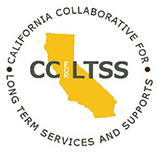Olivia Donna Gelardin was exquisite. At almost 5 years old, Livy, as we called her, was delighted to watch sunlight reflect off the window, feel the sand run through her fingers in her garden, splash soapy water in the bath tub with her brother.
She was our first, our dream-come-true baby, our patient teacher.
Livy was born with Schizencephaly, a rare neurodevelopmental disability characterized by global delays in gross and fine motor skills, cognitive functioning and speech.
Initially, her diagnosis made us anxious. My wife and I have physical disabilities and understood how to advocate for our own needs, but our daughter’s reality was somewhat unfamiliar ground. Mostly, we feared that her intellectual disability would result in exclusion from participating in play, learning and peer-relationships. We sought every opportunity to help our little girl grow and thrive. With the support of early intervention, intensive therapeutic supports, various State-funded services, love and support from family and, most of all, Livy’s extremely hard work, our little girl blossomed.
For the first three years of Livy’s life, we paid out of pocket for all healthcare, private therapy and in-home support service costs beyond what our insurance would pay. The costs exceeded $35,000 annually. Though we are privileged to be a dual-income household with a mortgage and modest assets, the expenses quickly snowballed.
We slashed our family budget and refinanced our home, but were sliding quickly into debt. Then came a lifeline: Livy reached an age where she qualified for Medicaid services.
Specifically, Livy was eligible for a program called Institutional Deeming, a Home and Community-based services waiver designed for children with developmental disabilities. Kids can qualify irrespective of their parents’ income, an especially important rule given that the cost of needed services can easily eclipse health insurance coverage limits.
The Medicaid Institutional Deeming waiver is administered by the California Department of Developmental Services (DDS). According to the agency, “The Waiver services make it possible for consumers to live in the community instead of an Intermediate Care Facility for the developmentally disabled or a State Developmental Center.”
This Medicaid-funded program changed our little girl’s life. Livy was now covered for weekly physical, occupational and speech therapy, monthly and quarterly visits to doctors (neurology, orthopedic, multiple specialty care and primary care physicians), daily seizure control medications, annual MRI’s, ongoing EEGs and quarterly infusions. Medicaid enabled us to employ an in-home care provider who trained to understand our daughter’s multiple disabilities and how to administer her medications.
Our family was able to rebalance financially and also continue to pay out of pocket for necessary additional therapies for Livy, such as a special needs aquatic program and a music class. All of the healthcare access made available through Medicaid meant that our daughter could be supported in her development and excel. We saw the impact daily, in the ways she developed physically, cognitively and started to achieve various developmental milestones. She learned how to walk, first using a walker and then on her own. She learned to use adaptive spoons and sippy cups to feed herself and eventually transitioned to standard toddler utensils. She started to communicate, at first by pointing at pictures and then through some basic sign language and vocalizations. Most importantly, our bright and determined child was able to engage in classroom activities with her peers and became known as quite the resident artist.
While non-verbal, Livy established deep friendships and support networks in school, with her medical providers and through her many extracurricular activities. She served as a peer role model to other children and families with disabilities, and was featured in several state and national campaigns for early childhood development. Livy was a powerful young person who had a huge impact on all those around her.
Livy passed away suddenly last December, after experiencing a massive seizure in her sleep, several weeks shy of her fifth birthday. Losing your child is like acquiring a gaping wound that never heals. The only soothing balm has been the multitude of memories we created with Livy. The precious days we spent with her playing in the pool, gardening, traveling, making art projects, singing “The Itsy Bitsy Spider” and snuggling up with a book. The memories keep us going, keep us fighting and advocating in her name for other children and families.
Without Medicaid and all that it allowed my daughter, I don’t know what our memories with Livy would look like. I’m convinced the current threat to change and limit Medicaid under the various federal health care proposals (the American Health Care Act, the Better Care Reconciliation Act and their successors) imperils millions of children who rely on this support to access programs and services that are proven to be effective and necessary for their development.
According to the Kaiser Family Foundation, capping Medicaid would restructure Medicaid financing in ways that would cap federal funding through a block grant or per capita limit approach. “Under such proposals,’’ the Foundation says, states “are likely to limit the number of people covered and the scope of benefits available as states use increased flexibility to address less federal funding than under the current financing structure.”
This impact would be felt by an estimated 11.2 million, or 15 percent of all children in the U.S. who have special health care needs and utilize more services than their peers. I shudder to think of what will happen to families who can’t pay out of pocket for medical coverage. The impossible choices put to families will be devastating.
Whatever direction our government takes on providing health care to its citizens, Medicaid must be fully funded so that waivers like Institutional Deeming can continue. Regardless of one’s position on the current healthcare law, it is important to recognize evidence-based programs and policies that dramatically improve health outcomes for our nation’s children.
Article re-published with kind permission of Christina Mills from her blog Dear Livy: Letters to My Daughter.
 Eli Gelardin serves as the Executive Director of Marin Center for Independent Living. He has worked in the field of disability advocacy and services for the past 15 years. He also serves as a board member on the Matrix Parent Network & Resource Center. Eli lives in the Bay Area with his wife and son. He honors his daughter every day through his work.
Eli Gelardin serves as the Executive Director of Marin Center for Independent Living. He has worked in the field of disability advocacy and services for the past 15 years. He also serves as a board member on the Matrix Parent Network & Resource Center. Eli lives in the Bay Area with his wife and son. He honors his daughter every day through his work.



Livy was a gift to all who knew her, a little elder who taught us to appreciate what is right before our eyes – light patterns, music, tastes, sounds, and other sensory delights. She was so proud of each accomplishment. I am so glad I had the honor to be her grandma for the brief 4 years 11 month of her life.
Thank you for your courage Eli, I have shared. Big love to you and your wife.
” Where my caravan has rested, Flowers I leave you on the grass”-Quote-
A Little Book Of Comfort-An anthology of grief and Love by Anthony Guest